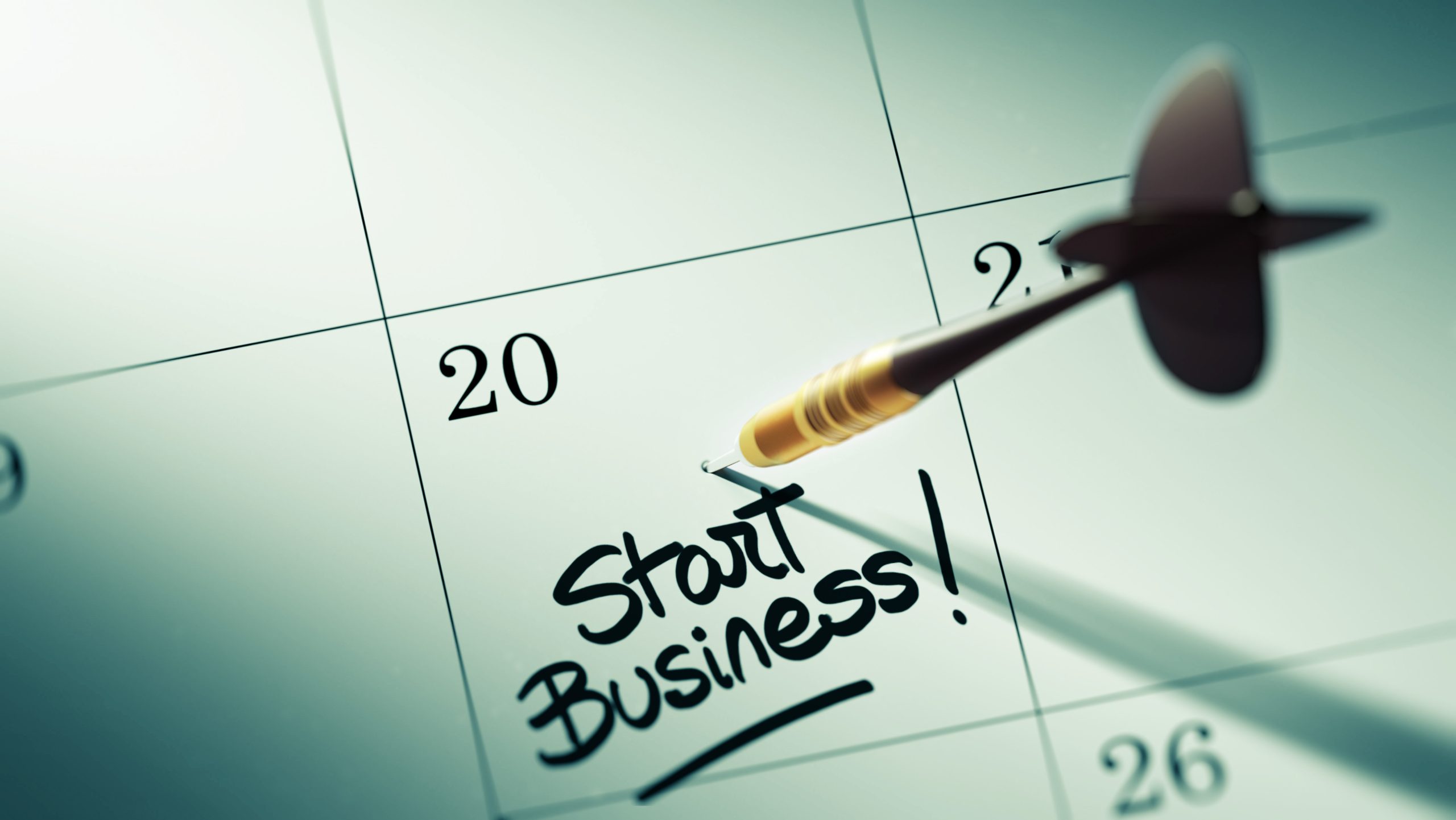Starting a new business is exciting and rewarding, but it’s not always easy to know where to begin.
Our last blog highlighted 5 things you need to consider if you’re starting a business from writing a business plan to finance and legalities, and now, we’re delving a bit deeper into how to go about starting a business and the order in which you should do things to get your business going.
Test the water
Before you go through the formalities of officially setting up your business, it’s a good idea to test the water and the viability of your business idea.
You could set up social media accounts for your business to gauge interest, start to build awareness and a following, check out what other businesses in your sector are doing, and do some market research using online tools like Google Trends.
Think about your business name – be creative but clear. And start to put together your business plan. Read more about creating your business plan.
Gather resources
Depending on your type of business, you’ll need to gather the skills, resources, equipment, and stock to deliver what you’re offering.
– Funding. The way in which you raise capital for your business start-up is one of the most important considerations and often one of the biggest barriers. Read more about start-up business finance.
– Courses and training. Check whether you need specific training or qualifications.
– Equipment. Write a check list of any tools or equipment your business may need, prioritise them from essential to desirable, and be sure to budget for them.
– Products. If you’re setting up a shop or selling your own creations, you’ll need to find suppliers and get your materials or stock together.
– Systems and software. To help you to run different elements of your business from accounting to ecommerce. Read more about systems and software.
Location, location, location
Think about where you will operate from – whether your business will be online or at a commercial premises, your company will need a base.
If your business will be run from a non-domestic property, you’ll need to pay business rates.
If you’re starting your business from home, you may need a dedicated space, office, or workshop.
You won’t generally have to pay business rates if you use a small part of your home for business purposes but in some cases you do.
The government’s business rates calculator will help you to estimate your business rates.
Legalities and tax
Running a business comes with legal and accounting responsibilities and there are certain legalities that every business needs to follow to make sure they are compliant with HMRC.
Every new business must choose a legal structure and register the business with HMRC. There’s a £1,000 tax free allowance, but after that you’re legally required to register.
Find out more about legal structure for your new business.
For any business, clear and organised accounts are essential, and accounting software is a useful (and compulsory for VAT registered businesses) way of accounting for your business. See our guide to digital tax.
Set up a record keeping system to help you to stay organised with your paperwork. Keep up to date with your bookkeeping and accounts and make sure you meet your tax obligations throughout the tax year. If running your own accounts becomes too complicated or arduous, talk to your accountant about how they can help.
Find out more about how we can help with bookkeeping and accounts.
Other legalities to consider are business rates if you’re renting or buying a property for your business, payroll if you’re going to employ people, appropriate insurance, licenses, protection of intellectual property.
Find out more about legal documentation for your new business.
Talk to your accountant if you’re unsure about legalities and tax obligations for your business.
Marketing
No business will flourish if customers don’t know they exist. Getting your name out there and attracting customers through marketing is an essential part of running a business.
Creating a website is a good place to start for most businesses – even if it’s just a few pages at first – it’s a place where you can signpost customers, tell them about what you do, and how they can contact you. Create a free Google My Business page to help with your SEO.
Building a social media presence is a great way of free marketing and connecting with customers. Decide the best social media platform for your business and start from there –Instagram, Twitter, LinkedIn, Facebook, or TikTok.
Consider your customer base, if they’re local, consider flyers and PR or advertising in local press or publications specific to your sector.
Get out and network at local or industry events – become the face of your business. Word of mouth is still very much a present-day marketing tool.
How we can help you start up your business
Starting a business can be a daunting endeavour, with many factors to consider but you don’t have to do it alone.
At Chorus Accounting we can help you to cut through the red tape and support you from the very beginning of your business.
We are so much more than accountants. If you need a trusted advisor, we would love to hear your business ideas and we’ll help you to evaluate them in a constructive and realistic manner to help you embark on your new business journey.
Getting things right from the start will set you up for ease, efficiency, and success in the future.
To find out how Chorus Accounting can help you with your payroll, let’s talk. Call 01202 332500 and one of the team will be happy to help.

